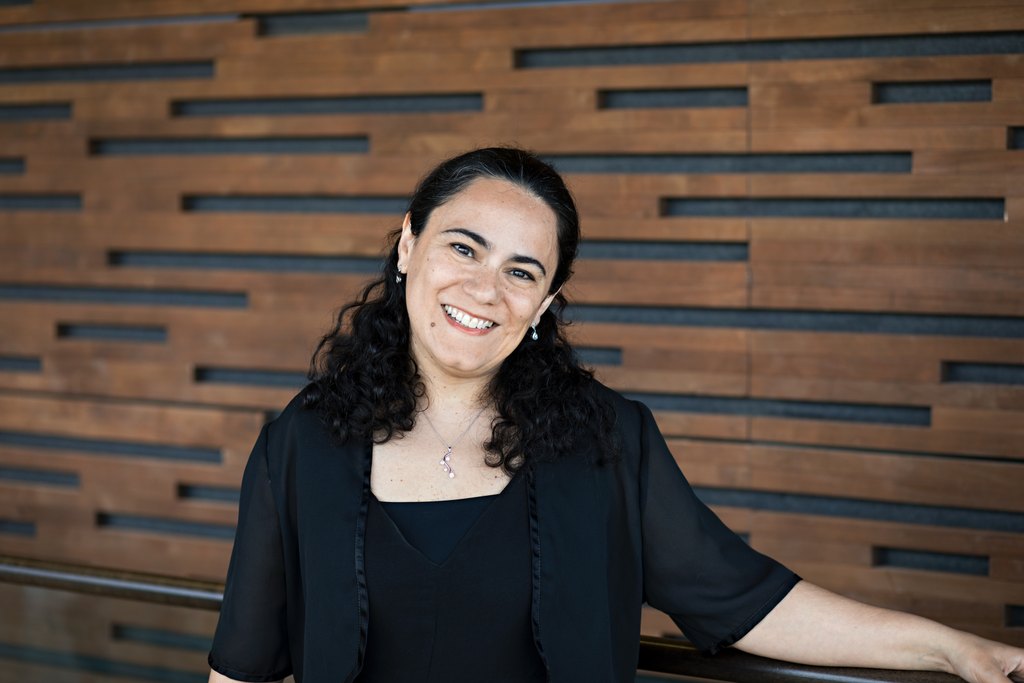Analía Capponi-Savolainen uncovers the hidden meanings of children’s singing
In her doctoral dissertation, Capponi-Savolainen discovered that singing is deeply embedded in first graders’ lives. “In schools, it’s much more than the curriculum.”

In her study, Capponi-Savolainen examines the singing experiences of 6–7-year-old first-grade children in a culturally diverse school in Finland’s capital region. She investigated what singing means to the children, and what music education and schools can learn from them.
In her research, Capponi-Savolainen worked with 44 children and interviewed 22 of them. Seven stories of how these children approach singing in their everyday lives are presented in the dissertation. Capponi-Savolainen discovered that for these children, singing is not just a performance but a tool for navigating everyday life.
“Children use singing to create their own spaces of trust and freedom for their personal purposes: to cope with everyday struggles, to create new ways of acting and participating, and to exercise their political voice. For example, in these spaces, they can choose to sing or not sing, or to sing and dance simultaneously. They can choose their own music,” Capponi-Savolainen explains.
She noted that the relationships formed through singing are crucial. For example, one of the children said that when singing with friends, she uses all her vocal potential, singing loudly around the neighbourhood, but when alone, she sings softly. Private singing, or “singing for oneself,” is also very important to the children. They sought out private or shared singing spaces, such as the schoolyard or even hidden corners of the classroom, where they could sing or hum freely.
For the children in this study, singing in adult-led activities at school felt different from their personal singing experiences. “While some children were eager to share songs from their home cultures, others hesitated and preferred not to bring their songs to school.”
A new ecological approach to children’s singing
For decades, research on children’s singing has focused on vocal development and pedagogical methods, or how song repertoires reflect children’s cultures. However, little attention has been paid to how young children themselves perceive and experience singing, particularly in today’s increasingly diverse educational environments. This is despite global and national policies, such as the UN’s Convention on the Rights of the Child and Finland’s Child Strategy, urging societies to better consider children’s perspectives in decision-making that affects their lives.
Capponi-Savolainen’s findings challenge the conventional emphasis on singing as a performance or a skill to be measured in educational settings. Instead, her study promotes an ecological understanding of singing, where it is seen as a way for children to exist, communicate, and connect with their world in the present moment.
Her research suggests that schools could use singing as a medium to link children’s experiences in the two most impactful environments of their lives – home and school. A shift in mindset is needed to understand children better, especially in schools, and to care for each child as a unique individual and as part of society.
“Singing occurs in places and spaces where meanings are constructed. More attention should be given to singing as a powerful activity and affordance that bridges home and school experiences, and to the school’s potential as a bridging organisation through a curriculum of care that can help young children navigate their singing ecologies and lives in a meaningful way.”
Capponi-Savolainen encourages educators to rethink how they approach singing in the classroom and how they can better take into account children’s experiences and perspectives.
“We are constantly asked to find new ways to listen to our children, but the question is how to listen and how to respect what is heard. To see the ‘real child’ in front of us, awareness is needed, but in order to make a difference, we need action. Learning from children about what singing means to them and creating a curriculum of care through singing is a way to do this.”
The public examination of the doctoral dissertation of Analía Capponi-Savolainen will be held on 15 February 2025 at the Musiikkitalo Camerata Hall (Mannerheimintie 13, Helsinki).